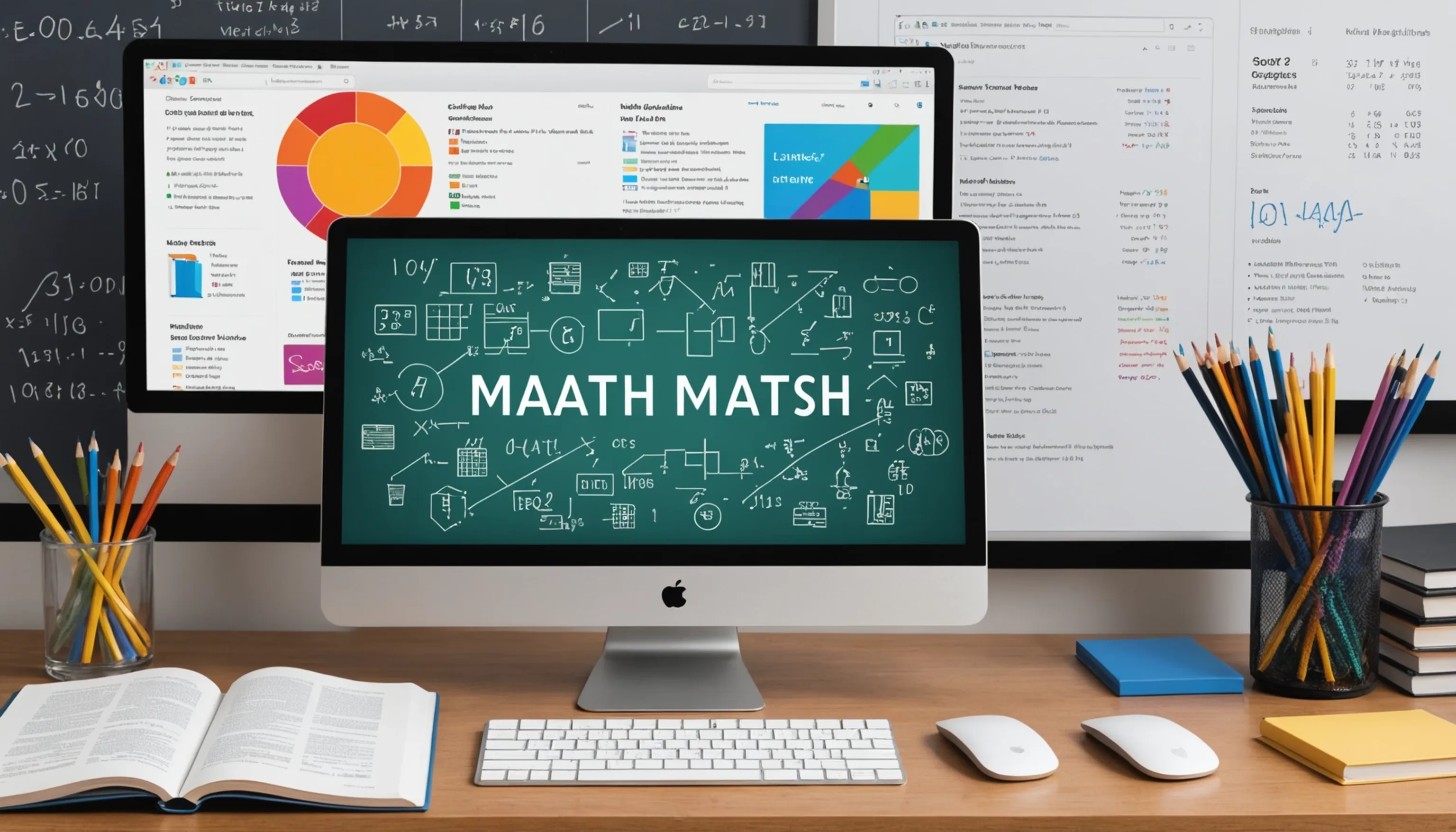Encouraging a Teenager Interested in Math
 HvWHenry van Wagenberg
HvWHenry van Wagenberg
How to Encourage a Teenager Interested in Math
Encouraging a teenager interested in math involves providing support and fostering their passion. Start by engaging in conversations about their interests and experiences in math. Show enthusiasm for their achievements, no matter how small.
Introduce them to real-world applications of math, like budgeting or engineering, to showcase its relevance. Consider enrolling them in math-related extracurricular activities, such as clubs or competitions, which can enhance their skills and confidence. Lastly, provide access to resources like books, websites, and apps that make learning math enjoyable and engaging.
Recognizing Signs of Interest in Math
Recognizing the signs of a teenager's interest in math can help you nurture their passion effectively. Here are some key indicators to look out for:
- Engagement in class: If your teen often participates in math discussions, asks questions, or seeks help with challenging problems, it's a strong sign of interest.
- Curiosity: Pay attention to whether they show curiosity about mathematical concepts outside of class, such as asking questions related to math in everyday life.
- Enjoyment of math-related activities: If your teenager enjoys solving puzzles, playing math games, or participating in math clubs, it indicates a genuine interest.
- Seeking resources: If they seek out books, websites, or apps related to math on their own, this demonstrates their desire to learn more.
- Persistence: Look for signs of perseverance when they encounter difficult math problems. A willingness to tackle challenges is a positive indication of their interest.
Additionally, recognizing when they exhibit enthusiasm towards math-related subjects, such as physics or computer science, can further highlight their passion for mathematics. Celebrate their progress and achievements in these areas to encourage them to explore math further.
By being attentive to these signs, you can provide the necessary support and resources to help your teenager develop their interest in math and potentially pursue it as a lifelong passion.

Creating a Supportive Learning Environment
Creating a supportive learning environment for a teenager interested in math is crucial for fostering their passion and enhancing their skills. Here are some effective strategies to consider:
- Designate a quiet study space: Ensure your teen has a dedicated area for studying math, free from distractions. A well-lit, organized space can significantly improve focus and productivity.
- Encourage open communication: Foster an atmosphere where your teenager feels comfortable discussing their challenges and successes in math. Be approachable and willing to listen to their thoughts and feelings.
- Provide resources: Stock their study area with math resources, including textbooks, workbooks, calculators, and access to online tools. Providing a variety of resources can spark interest and make learning more enjoyable.
- Promote collaborative learning: Encourage your teen to study with peers or join study groups. Collaborative learning can help them grasp complex concepts and develop problem-solving skills while building friendships.
- Celebrate achievements: Acknowledge and celebrate their progress, whether they’ve mastered a challenging concept or completed a difficult assignment. Positive reinforcement boosts confidence and motivation.
Additionally, consider incorporating math into daily life by involving your teenager in activities like budgeting for groceries or planning a family trip. This practical application helps them see the relevance of math in the real world, further encouraging their interest. By implementing these strategies, you can create a nurturing environment that supports your teenager’s love for math.
Resources to Foster Math Interest
To foster a teenager's interest in math, providing access to engaging resources is essential. Here are some valuable options:
- Books: Look for popular titles like "The Joy of x" by Steven Strogatz and "Mathematics: A Very Short Introduction" by Timothy Gowers.
- Websites: Websites like Khan Academy and Mathway offer interactive lessons and practice problems.
- Apps: Consider apps like Photomath and Prodigy, which make learning fun and interactive.
- YouTube Channels: Channels like Numberphile and 3Blue1Brown provide entertaining math content.
Utilizing these resources can help spark and sustain a teenager's enthusiasm for math.

Books and Websites for Math Enthusiasts
For teenagers interested in math, a wealth of books and websites can deepen their understanding and spark their enthusiasm. Here are some excellent resources to consider:
- Books:
- The Joy of x by Steven Strogatz - This book explores various mathematical concepts in an engaging manner, making them accessible to readers of all levels.
- Mathematics: A Very Short Introduction by Timothy Gowers - A concise overview of the beauty and utility of mathematics, this book is perfect for curious minds.
- How to Solve It by George Pólya - A classic guide that offers strategies for problem-solving in mathematics, suitable for all ages.
- Websites:
- Khan Academy - Offers free, comprehensive lessons on a wide range of math topics, from basic arithmetic to advanced calculus.
- Brilliant.org - Provides interactive problem-solving courses designed to stimulate logical thinking and creativity.
- Art of Problem Solving (AoPS) - A community and resource hub for math enthusiasts, offering online courses, forums, and challenging problems.
These books and websites not only provide valuable knowledge but also encourage critical thinking and a love for mathematics. By exploring these resources, teenagers can enhance their skills and connect with a broader community of math enthusiasts.
Math Games and Apps for Teens
Integrating math games and apps into a teenager's learning routine can significantly enhance their interest and engagement in mathematics. Here are some popular options that make learning fun:
- Prodigy: This interactive math game allows students to embark on a fantasy adventure while solving math problems aligned with their curriculum. Prodigy adapts to each player's skill level, making it suitable for various ages.
- Mathletics: A comprehensive online math platform that combines practice, competitions, and rewards. It features a wide range of activities to help students master math concepts while having fun.
- Photomath: An innovative app that helps students solve math problems by simply taking a picture of the equation. It provides step-by-step solutions, making it an excellent tool for homework help.
- DragonBox: A series of educational games designed to teach algebra concepts in a playful way. DragonBox games engage teens in problem-solving while they explore mathematical relationships.
- Coolmath Games: This website offers a variety of math-based games that challenge students' logical thinking and problem-solving skills. The games are designed to be entertaining while reinforcing math concepts.
Incorporating these games and apps into daily routines can transform math from a daunting subject into an enjoyable and stimulating experience. Engaging in these activities can help teenagers build confidence in their math skills while fostering a lifelong love for the subject.
Extracurricular Activities Related to Math
Extracurricular activities can significantly enhance a teenager's interest in math while providing valuable skills and experiences. Here are some excellent options:
- Math Clubs: Joining a math club allows teens to collaborate with peers, tackle challenging problems, and participate in competitions.
- Math Competitions: Events like Math Olympiads and local math contests encourage critical thinking and problem-solving in a fun, competitive environment.
- STEM Workshops: Engaging in STEM (Science, Technology, Engineering, and Math) workshops can expose teens to real-world applications of math.
- Robotics Teams: Participating in robotics encourages the use of math in design and programming, fostering teamwork and creativity.
These activities not only enhance math skills but also build confidence and social connections.
Math Clubs and Competitions
Math clubs and competitions provide teenagers with fantastic opportunities to deepen their understanding of math while developing critical thinking and problem-solving skills. Joining a math club allows students to collaborate with like-minded peers, share their passion for mathematics, and tackle challenging problems together. These clubs often provide a supportive environment where teens can explore advanced topics beyond their regular curriculum, enhancing their math skills in a fun way.
Competitions are a key aspect of math clubs, allowing students to test their skills against others. Events such as Math Olympiads, AMC (American Mathematics Competitions), and local contests challenge participants with complex problems that require creative solutions. Participating in these competitions helps students learn to think under pressure and manage their time effectively.
Moreover, math competitions foster a sense of community and camaraderie among participants. Working together in teams during competitions encourages collaboration and teamwork, while individual competitions help build personal resilience and confidence in their mathematical abilities.
Many math clubs also offer mentorship opportunities, where experienced members guide younger students. This mentorship can provide invaluable insights and foster a love for mathematics that lasts a lifetime.
Overall, math clubs and competitions not only enhance mathematical knowledge but also cultivate a supportive community for teens, making math more engaging and enjoyable.
STEM Programs and Camps
STEM (Science, Technology, Engineering, and Math) programs and camps offer teenagers an exciting way to explore their interests in math while gaining hands-on experience in various fields. These programs often combine rigorous academic content with engaging, real-world applications, making them an ideal environment for budding math enthusiasts.
Many STEM camps focus on project-based learning, allowing students to work on collaborative projects that incorporate math concepts. For example, participants might design a bridge, create a computer program, or build a robot, all of which require strong mathematical skills. Through these projects, teens can see the direct application of math in solving practical problems.
In addition to traditional summer camps, after-school STEM programs are increasingly popular. These programs often provide access to specialized resources and expert instructors, further enriching the learning experience. Students can engage in activities such as coding, game design, or engineering challenges, all while honing their math skills in a fun and interactive environment.
Moreover, many STEM programs encourage participation in competitions, such as science fairs or engineering challenges, where students can showcase their skills and creativity. These competitions not only enhance their problem-solving abilities but also build confidence as they present their work to peers and judges.
By participating in STEM programs and camps, teenagers can develop a deeper appreciation for math, build lasting friendships, and gain invaluable skills that will benefit them in their future academic and professional pursuits.
